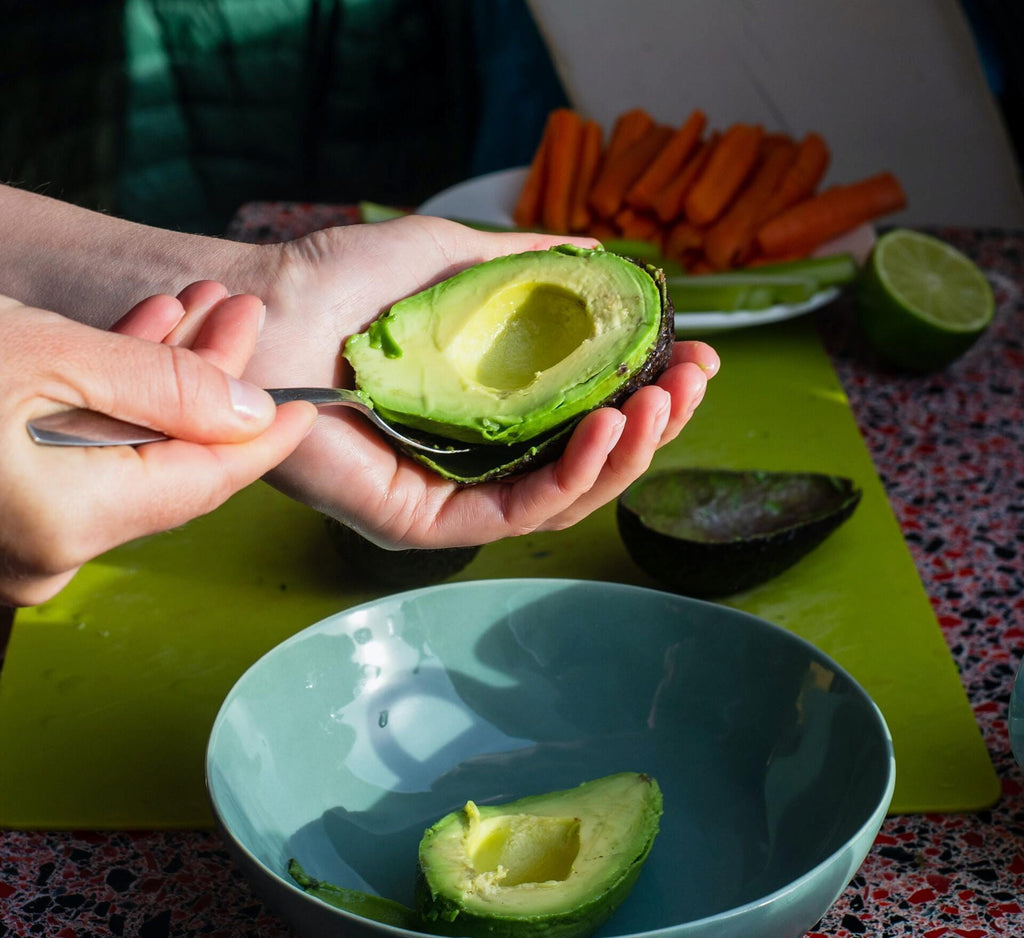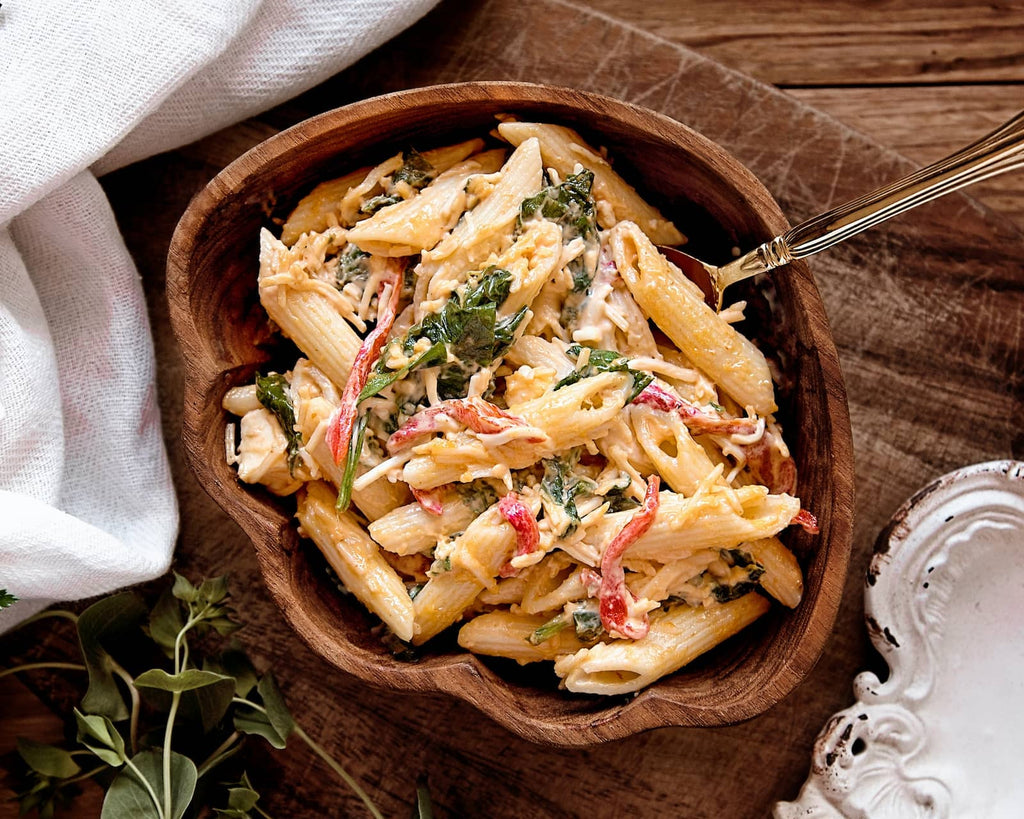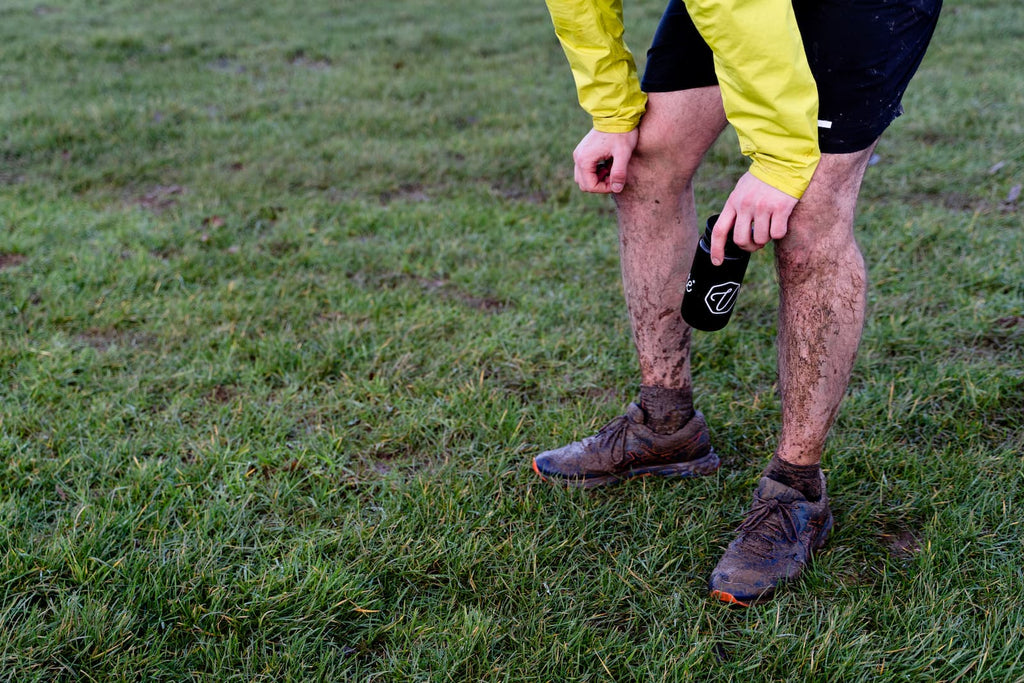Understanding nutrition for runners can be daunting. Whether you’re starting couch-to-5k or training for your tenth marathon, knowing how to fuel for running success can be a tricky subject to master. And because we all run differently – and respond uniquely to different foods – you can’t just adopt your fast friend’s running nutrition plan. You need to create your own.
Luckily there are basic principles you can follow to help you devise an optimal fuelling strategy, and Veloforte is here to give you everything you need to know to start building that running nutrition plan.
We live and breathe natural running nutrition, and we’ll use our expertise to help you begin working out when and what you should eat before a run. How to stay energised throughout your training and racing, and what you can eat to support your recovery.
From Veloforte, here’s your complete guide to building a bullet-proof runner’s diet.
Download the ebook above.
Important nutrients, vitamins and minerals for runners
If you want to run at your best, recover well and stay healthy, understanding the main nutrient building blocks that supply energy, support muscle repair and keep that running engine in working order, are good places to start.
Here’s a basic introduction to the important macros, micros, vitamins and minerals that make up a healthy diet for runners:
Carbohydrates
Carbohydrate is the body’s preferred fuel for exercise. The body converts carbs into readily-available glucose which is either used immediately as energy to power your runs, or stored as glycogen in the muscles and liver, your main fuel tanks. That limited storage holds between 300 and 600g of glycogen and takes between 60 and 90 minutes of running to empty.
For longer efforts like the marathon, you’ll need to find ways to top up energy on the move. Restocking depleted glycogen stores post-run is also important for effective recovery.

Protein
Protein is a vital building block for the body and essential for recovery. It helps repair micro-tears in the muscles and supports the uptake of glycogen into the muscles, refilling your fuel stores for your next run.
How much protein you need depends on a range of factors, including the duration and intensity of your run. You can reach for an immediate post-run hit with 3:1 ratio carbs to protein in a bar or a shake. But aiming to consume 0.4 grams per kilogram of bodyweight at each meal, also provides a good regular supply to support your running.
You can get your protein from plants or animal sources but you should aim for combinations that provide complete proteins with all 20 essential amino acids. For example, hummus and pita bread, peanut butter on wholewheat toast.
Or grab one of Veloforte’s Mocha or Forza protein bars for a convenient – and delicious – hit of complete proteins.

Fat
Not all fats are created equal. Saturated fats found in foods like cakes, biscuits, crisps and fatty red meat, can be harmful to health. But the body needs so-called ‘good fats’ – monounsaturated and polyunsaturated fats – to function properly.
Good fats help with the absorption of fat-soluble vitamins (A,K,D and E) that support recovery, energy supply and your immune system. They can also lower blood pressure levels, reduce cholesterol and cut the risk of heart disease. Food like avocados, nuts and oily fish are all good sources of healthy fats.
Sodium
Sodium is the main electrolyte lost when we sweat. It plays a vital role in hydration, helping to maintain fluid balance. But it also helps to conduct nerve impulses, stimulate muscle contractions, and control blood pressure and volume.
Most of the sodium we consume is sodium chloride, aka table salt, and guidelines recommend healthy adults need 1,500 to 2,300 milligrams of sodium per day. However, runners and endurance athletes might need to take more, again depending on the duration and intensity of runs and factors such as age, sex, weight, the temperature and your sweat rate and sweat sodium concentration.
Carefully balanced electrolyte powders, like the Veloforte Vivo, Attivo and Solo offer a convenient and delicious way to top up.

Potassium & Magnesium
Along with sodium, potassium and magnesium are part of the crucial electrolyte mix that supports normal bodily functions. Importantly for runners, this mix helps to keep you hydrated, regulate nerve and muscle function, blood pressure and PH level and rebuild damaged tissue.
Potassium specifically contributes to muscle contractions, especially of the heart and digestive system and aids energy production and storage. Magnesium supports nerve function, regulates the use of nutrients for energy and helps maintain a regular heartbeat. It’s also been shown to promote better sleep – a crucial factor in effective recovery.
Best food for runners
If you’re eating a well-balanced and varied diet, the chances are you’ll already be supplying your body with much of what it needs to run. But there are some foods that deliver more bang for buck when it comes to runners’ essential nutritional needs.
Here’s a selection:
Bananas
The ultimate fast food for runners, bananas deliver a wonderfully portable package of goodies. There’s fast-acting energy from simple carbs – around 450mg potassium in the average banana – to support muscle function. And manganese, which is important for protein metabolism and energy production.
You also get vitamin C, B6 and fibre and some studies have shown this may help reduce post-run inflammation.

Dates
The local ultra running legends who win the Marathon Des Sables year after year, swear by dates as a mid-run fuel. One serving of two Medjool dates provides around 33g carbs from fruit sugars and 15 percent of your recommended dietary fibre in a pocket-friendly portion.
Dates are also packed with half the potassium of a banana and their low Glycemic Index (GI) slows down the absorption of sugar into the system, making them a great even and sustained source of energy.

Oats
Another quick and convenient staple running energy food, oats offer a powerhouse mix of slower-burn complex carbs, dietary fibre and protein. Providing steady fuel for your miles and supporting the post-run recovery too. Oats are also high in blood-sugar stabilising manganese, something endurance athletes can be low on.
A bowl of porridge can provide your recommended 2mg daily manganese. It’s also a good source of beta-glucans for warding off respiratory tract infections and avenanthramides, antioxidants that help fight free radicals and boost your immune system.
Avocado
Smashed up on toast or blitzed in a smoothie, there are loads of ways to get avocados into your diet. Which is great because they’re packed full of run-supporting benefits.
Avocados are a rich source of good monounsaturated fats that can help fight bad cholesterol, reduce inflammation and help with nutrient absorption from other foods. They also come packed with plenty of their own goodies including vitamin E, potassium, calcium, magnesium, vitamin K, B-vitamins, fibre, and folic acid.

Beetroot
Beetroots are rich in run-benefitting electrolytes, antioxidants and also nitrate. Studies show that dietary nitrates can delay fatigue, improve blood flow, lower blood pressure and even improve stamina. If that’s not enough, they’re also a relatively good source of carbohydrates with 10g per 100g.
Beet juice shots are a popular way to get an easy hit of ‘troots nitrate goodness in large enough quantities to unlock the benefits but some research suggests eating the whole food, rather than concentrated juice shots, might be more effective.
Energy Gels
Energy gels for running offer a convenient way to top up energy stores on the run, particularly at higher intensities. The carbs in gels are designed to be absorbed more easily and more quickly by your body to give you an instant bump in energy and keep you running strong. Ideally without putting too much strain on your stomach.
During runs your body prioritises getting blood to your muscles over your digestive tract. This makes digesting on the go much trickier. To compound the problem, over-processed carbohydrates, like those found in many traditional energy gels, can play havoc with sensitive stomachs and cause unwanted tummy troubles.
All-natural energy gels are a great alternative to their over-processed counterparts. Veloforte Gels use natural ingredients in unprocessed forms, containing sugar from natural sources, such as dates and rice, which are much easier on the stomach. They’re also compact for easy storage, with amazing flavours and caffeine kicks.

Energy Bars
Energy bars are wonderfully versatile. They can be used as a pre-run top-up for your glycogen tanks, a mid-run alternative to gels on longer runs like ultra marathons and as fast recovery fixes post run.
All the natural bars in the Veloforte Energy Bars range provide the perfect balance of nutrients needed for you to perform at your best. They also use energy sources like dried fruit and nuts to boost your energy levels in a way that lasts and won’t upset your stomach.

Importance of running hydration
Just 5% dehydration can result in up to a 30% reduction in performance. So if you want to run at your personal best, getting your hydration right is crucial.
When you’re dehydrated you fatigue more easily, you’re more prone to muscle cramps, and even feelings of faintness or dizziness. Diminished fluid levels also make your heart work harder to pump blood around your body too, so runs feel harder. None of this is fun.
Avoid the misery by building good hydration habits into your every day. The NHS recommends drinking 1.2 litres of water daily though runners are likely to need more. Your own unique fluid replacement needs – during and post-run – depend on duration, intensity, temperature and sweat rate. Though for a rough guide: you need to consume one-and-a-half litres of fluid for every kilogram of bodyweight you lose getting to the finish line.
Thirst and the colour of your urine (the lighter the better) provide good hydration cues. And remember that when we sweat we lose important minerals too.
So consuming electrolytes like Veloforte’s Attivo, Vivo and Solo can help support the body’s fluid uptake, balance and aid recovery. Not to mention livening up your water with tantalising flavours.

How to create your running nutrition plan
If you’re in the habit of fuelling your training well, you shouldn’t need to tweak your nutrition plan too much for a race or a specific run. Afterall, one of the golden rules of running is stick to what worked in training. Suddenly swapping your porridge and peanut butter for kippers, on the morning of your race is a fast-ticket to GI meltdown.
There are, however, some things you need to factor in when race day comes and you’re trying to work out what to eat before running.
Night before
It’s easy to zero in on the pre-race evening meal as the most important moment for carb loading. But a small increase in carbs in the days leading up to an event can help to avoid overloading the night before and waking up feeling locked up, sluggish and potentially carrying a pasta baby with you during your run.
If you’re tapering, you’ll be using fewer carbs too, so provided you stick to the same eating patterns, this should help build up glycogen stores.

Start time
Think about when you’ll be running. Race start times can be brutally early and you need to make sure you’ve given yourself time to prepare – and eat – your preferred breakfast and get to the start on time.
If you know you need to leave the house at 5.30am, practise using portable fuelling in training. Think energy bars, shakes or carb-rich drinks that you can eat in the car.
Duration
How long you intend to run for is crucial. If it’s a 25 minute 5k or an hour-long 10k, provided you’ve eaten well, your body has enough fuel stores. If you’re looking at a 5-hour marathon, you’ll need to plan sufficient top ups en route.
As a rule of thumb you’ll need to take your first carbs around 60 to 75 minutes into your run and then aim for 60g carbs per hour after that.

Intensity
How hard you’re likely to be working during your run also matters. Most of us burn more glycogen at higher heart rates, so the harder you’re working, the quicker your fuel stores burn out.
Recovery
When you’ve just flopped over the finish line of your goal race, you’re more likely to be thinking about chips and beer than post-run recovery fuel. But having a bar or shake prepped in your bag is smart.
When it comes to deciding what to eat after a run, choose something you’ll look forward to eating, like the Veloforte Forza bar, that has everything you need in just the right ratio to start your body’s bounce back.

Running nutrition rules
Follow these simple running nutrition guidelines and you’ll always be ready to put your best foot forward.
Trial and error
Just like running shoes, what works for someone else might not work for you. The only way to really discover your most effective run-fuel approach is to self-experiment.
Test different food sources, play with the timings and see what happens during runs of different intensity and duration. But most importantly, listen carefully to how you feel and once you find something that works, stick to it.
Don’t wait
If you wait until your legs feel hollow and the dizzies set in, to reach for that energy gel or bar, it’s too late. Once you’ve bonked, bouncing back is hard. A successful fuelling strategy should provide even energy, with levels topped up before you know you need it.

Power up
Studies show that a well-timed dose of caffeine (between 3-6mg/kg bodyweight) helps reduce perceived exertion. That can make an 8 min/mile feel like a 7 min/mile. The effects tend to be more pronounced following a period of abstinence too.
Be warned though: too much can leave you jittery, or worse, running the portaloo gauntlet. The Slow-acting caffeine from guarana Velforte uses in its products can help limit those risks.
Top up rates
Believe it or not, studies have shown that mountain marathon runners who consumed 120g carbs per hour – the equivalent of five or six gels – performed better. But that takes a lot of gut training.
For most of us, it’s better to aim to take on 60g carbs every hour to avoid hitting the wall.
Getting started with running nutrition
1. Understand your aims
Effective running nutrition starts with understanding your goals. Are you simply looking to get fit, or do you have a target race in mind where you’ll need a specific plan?
Making a detailed list of all the important factors, how long you’ll run for, how often, when and the intensity, will help to refine your fuelling needs.
2. Create your running diet and nutrition plan
Good running nutrition isn’t just about race day, it’s important to create the dietary habits that’ll fuel your health in and out of your running shoes.
Putting some preparation into those pivotal pre, during and post-run moments can help you run happy and meet your goals.
3. Create your hydration strategy
There are many variables to good hydration and understanding your unique needs requires trial and error and attention detail.
Monitoring your sweat rate in different conditions, paying attention to thirst and urine colour can all help you build a sensible approach to fluid intake.

4. Stock up and start testing
You have the tools to create your own approach to running nutrition, and now it’s time to stock up on the essentials and start your testing.
We don’t think you’ll need to look further than Veloforte’s range of all-natural, real-food bars, nectars, electrolyte powders and chews. We provide carefully balanced, powerful and delicious options for every runners’ needs.
![]()


